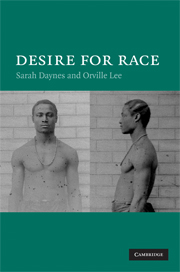Book contents
- Frontmatter
- Contents
- Acknowledgements
- Introduction
- 1 American sociology
- 2 Marxism
- 3 British social anthropology
- 4 British cultural studies
- 5 Intermediate reflections on essentialism
- 6 Belief and social action
- 7 Theorizing the racial ensemble
- 8 The politics of memory and race
- 9 Desire
- Conclusion
- Bibliography
- Index
3 - British social anthropology
Published online by Cambridge University Press: 22 September 2009
- Frontmatter
- Contents
- Acknowledgements
- Introduction
- 1 American sociology
- 2 Marxism
- 3 British social anthropology
- 4 British cultural studies
- 5 Intermediate reflections on essentialism
- 6 Belief and social action
- 7 Theorizing the racial ensemble
- 8 The politics of memory and race
- 9 Desire
- Conclusion
- Bibliography
- Index
Summary
It is commonly accepted that “doing anthropology” in the United States and in Great Britain does not mean exactly the same thing, neither does it imply the same methodology nor, most fundamentally, the same interests and angles of approach. British anthropology has largely focused on the social – hence its qualification of “social anthropology.” While American anthropologists looked at cultural practices, the British were above all interested in actual social relations – which implied looking at social structure, as well as classifying and comparing. The gaze of the social anthropologist, then, is on small things, but it looks beyond, to the “social system” in the background – which is very different from the immersion for its own sake that is characteristic of cultural anthropology. Social anthropologists want to understand the actual social structure, how it works, how it functions; and so the gaze of the anthropologist focuses on the present. Keith Hart, for instance, recalls that during his days as a student in the (very) social anthropology department at Cambridge in the sixties, he “once asked in a supervision, ‘Why are the Lele matrilineal?’ and was told, ‘We ask how, not why. That is evolutionary history. We are only interested in the functional consequences for Lele society that they are matrilineal’” (Hart 2003: 1).
A specific gaze then, both in spatial and temporal terms, clearly distinguishes social anthropology.
- Type
- Chapter
- Information
- Desire for Race , pp. 59 - 75Publisher: Cambridge University PressPrint publication year: 2008

